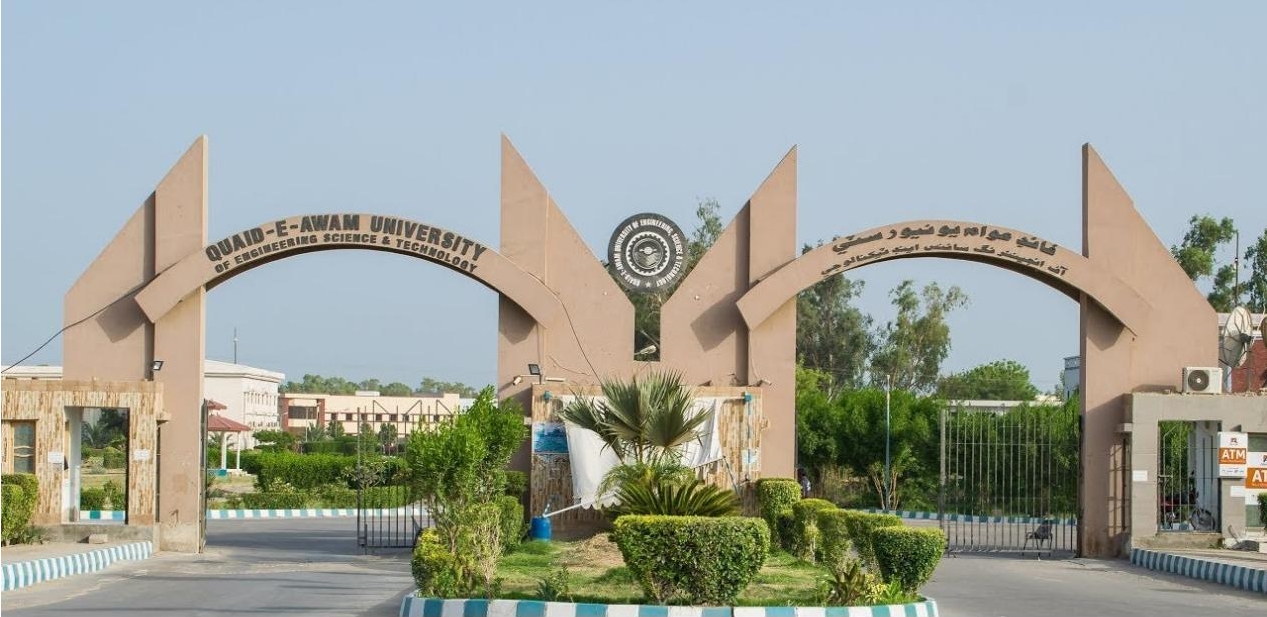Psychological Perspectives on Teacher-Student Relationships in Educational Contexts
Date:
October 17th, 2025 (UTC +5)
Organizer:
Department of English, Quaid-e-Awam University of Engineering, Science and Technology
Symposium Chair:
Dr. Abdullah Laghari
Lecture of Quaid-e-Awam University of Engineering, Science and Technology,
Nawabshah.
Personal Bio:
Dr. Abdullah Laghari is a regular faculty member at the Department of English, Quaid-e-Awam University of Engineering, Science and Technology, Nawabshah. He joined this University on 27th November, 2018. He pursued M.A in English Applied Linguistics from the University of Sindh in 2011. He joined Institute of English Language and Literature, University of Sindh, Jamshoro on 5th April, 2012 as Research Associate which continued till 5th August, 2013. He joined Education and Literacy Department under the Government of Sindh as a Lecturer English (BPS-17) on 6th August, 2013 which continued till 26th November, 2018. He joined this University on 27th November, 2018. He holds a Doctorate degree in Applied Linguistics from Institute of English Language and Literature, University of Sindh. His areas of interest include Classroom Management, Teaching through Technology, Large Classes, and English for Specific Purposes et cetera. He has attended many national as well as international conferences. He has also facilitated chairs in national conferences. In addition, he has launched several trainings for Professional Development of teachers. Concerning this, he has been actively working at ORIC and Directorate of Executive Training Centre, QUEST for many years.
Committee Members:
| Agha Kausar Durani | Quaid-e-Awam University of Engineering, Science and Technology | [email protected] |
| Adeena Aftab Pathan | Quaid-e-Awam University of Engineering, Science and Technology | [email protected] |
| Amna Arif Arain | Quaid-e-Awam University of Engineering, Science and Technology | [email protected] |
| Amolakh Nanjani | Quaid-e-Awam University of Engineering, Science and Technology | [email protected] |
Background
Psychologically speaking, teaching and learning is a two-way process in which the role of students is equally important. If students are ignored in the class, it is unlikely to result in unpleasant learning outcomes. In order to ensure the smooth process of teaching and learning, the relationship between teachers and students needs to be well-understood which is a critical factor in educational settings, influencing academic achievement, social-emotional development, and classroom dynamics. In this connection, psychological perspectives provide valuable insights into how these relationships form, evolve, and impact learning outcomes. In order to ensure significant learning outcomes, relationship between teacher and students needs to be the utmost importance.
Goal/Rationale:
The symposium is significant in terms of exploring the impact of teacher-student relationships on teaching and learning process in education. Additionally, the symposium highlights the role of teachers and students which is different in varying contexts. Therefore, the impact can also vary depending on the context of the study. Simply, it can lead to biased data. Secondly, cultural variability is often overlooked, as most studies focus on Western contexts, neglecting how Teacher-student relationships function in diverse educational systems. Emotional and mental well-being of both the teachers and students is crucial to ensure outcome-based learning. Overall, a number of studies are being carried on in this particular dimension where interesting findings are emerging. As a whole, psychological perspectives are key which need to taken into consideration for better relationship between teacher and student. By doing so, there can positive learning outcomes on the learners’ part.
Call for Papers:
This symposium is aimed at highlighting the impact of better teacher-students relationship in education and exploring its importance on the mental and emotional well-being of both teacher and students. Furthermore, the symposium underscores that positive teacher-student relationships improve academic engagement, reduce behavioral issues, and foster resilience. In this connection, contributors will address the need of positive relationship between teacher and students which can lead to academic excellence and professional development of students and teachers respectively. They will opine that the role of teachers is restricted to classroom teaching only; rather they emerge as nation-builders and inspiration for the students. In this way, they will also address challenges of cultural diversity, power dynamics, mental health in the relationship between teacher and students.
Topics
The main topics of this symposium are listed below.
Pedagogy & Psychology- Cooperative Pedagogy
- Experiential Pedagogy
- Pedagogy of Differentiation
- Assessment for Learning
- Cybernetic Pedagogy
- Pedagogy of Multisensory Learning
- Behavioral Psychology
- Cognitive Psychology
- Comparative Psychology
- Cross-cultural Psychology
- Developmental Psychology
- Educational Psychology
- Industrial-organizational Psychology
- Social Psychology
- Digital Sociology
- Sociology of Climate Change
- Migration and Globalization
- AI and Society
- Sociology of Technology
- Social Media Impact
- Post-Colonial Sociology
- Sociology of Mental Health
- Inequality and Social Justice
- Gender Studies in Sociology
- Core Fields (e.g., Theoretical Sociology, Historical Sociology)
- Specialized Areas (e.g., Urban Sociology, Criminology, Rural Sociology)
Meanwhile, submissions aligned with the overall conference theme are also welcome.
Laws- Cyber Law and Digital Privacy
- AI Ethics and Intellectual Property
- Environmental Law and Climate Policy
- Human Rights and Social Justice
- Labor Law and Gig Economy
- Consumer Protection and Data Security
- Criminal Law and Digital Crime
- Property Law and Blockchain Applications
- Public Health Law and Policy
- Media Law and Freedom of Information
- Comparative Politics and Populism
- International Relations and Global Governance
- Political Economy and Digital Finance
- Climate Policy and Environmental Politics
- Cybersecurity and Digital Governance
- Human Rights and Migration Policy
- Political Philosophy and Ethics in AI
- Public Policy and Social Movements
- Political Polarization and Media Influence
- Public Administration and Domestic Policy
Submission
All submitted papers should report original and unpublished work, experimental or theoretical, and are not under consideration for publications elsewhere. All papers should be no less than 4 pages in length and must strictly follow the format of the symposium template. All papers are subject to reviews and edits. Prospective authors are kindly invited to submit full text papers that includes title, abstract, introduction, tables/figures and references. Other styles of papers are not accepted. Please submit your papers in both .doc/.docx AND .pdf formats as attachments via email to [email protected]. by the given deadline. It is unnecessary to submit an abstract in advance.
Publication
Accepted papers of the symposium will be published in Lecture Notes in Education Psychology and Public Media (Print ISSN 2753-7048), and will be submitted to Conference Proceedings Citation Index (CPCI), Crossref, CNKI, Portico, Google Scholar and other databases for indexing. The situation may be affected by factors among databases like processing time, workflow, policy, etc.
* The papers will be exported to production and publication on a regular basis. Early-registered papers are expected to be published online earlier.
This symposium is organized by ICILLP 2025 and it will independently proceed the submission and publication process
Highlights:
The Department of English at Quaid-e-Awam University of Engineering, Science and Technology, Nawabshah, organized an academic symposium entitled "Psychological Perspectives on Teacher-Student Relationships in Educational Contexts." The session was facilitated by Dr. Abdullah Laghari, who introduced the theoretical framework and core concepts underpinning the symposium's focus and importance in the modern century.
Dr. Laghari delivered a comprehensive presentation examining the dynamics of pedagogical relationships, with particular emphasis on their crucial role in fostering student motivation and enhancing learning outcomes. His analysis highlighted the importance of understanding interpersonal dynamics within educational settings to optimize the teaching-learning process in different levels in educational contexts.
The symposium featured active participation from seven undergraduate students from the English Department, who engaged in structured discourse emphasizing on the need of enhancing friendly engagement between teacher and students by understanding this notion. These participants presented analytical perspectives on the application of psychological principles in educational practice, demonstrating how such frameworks can be operationalized to improve teacher-student interactions and create more effective learning environments.
The session provided valuable insights into the intersection of educational psychology and classroom practice, contributing to the professional development of both faculty and students in understanding relationship-based learning approaches.

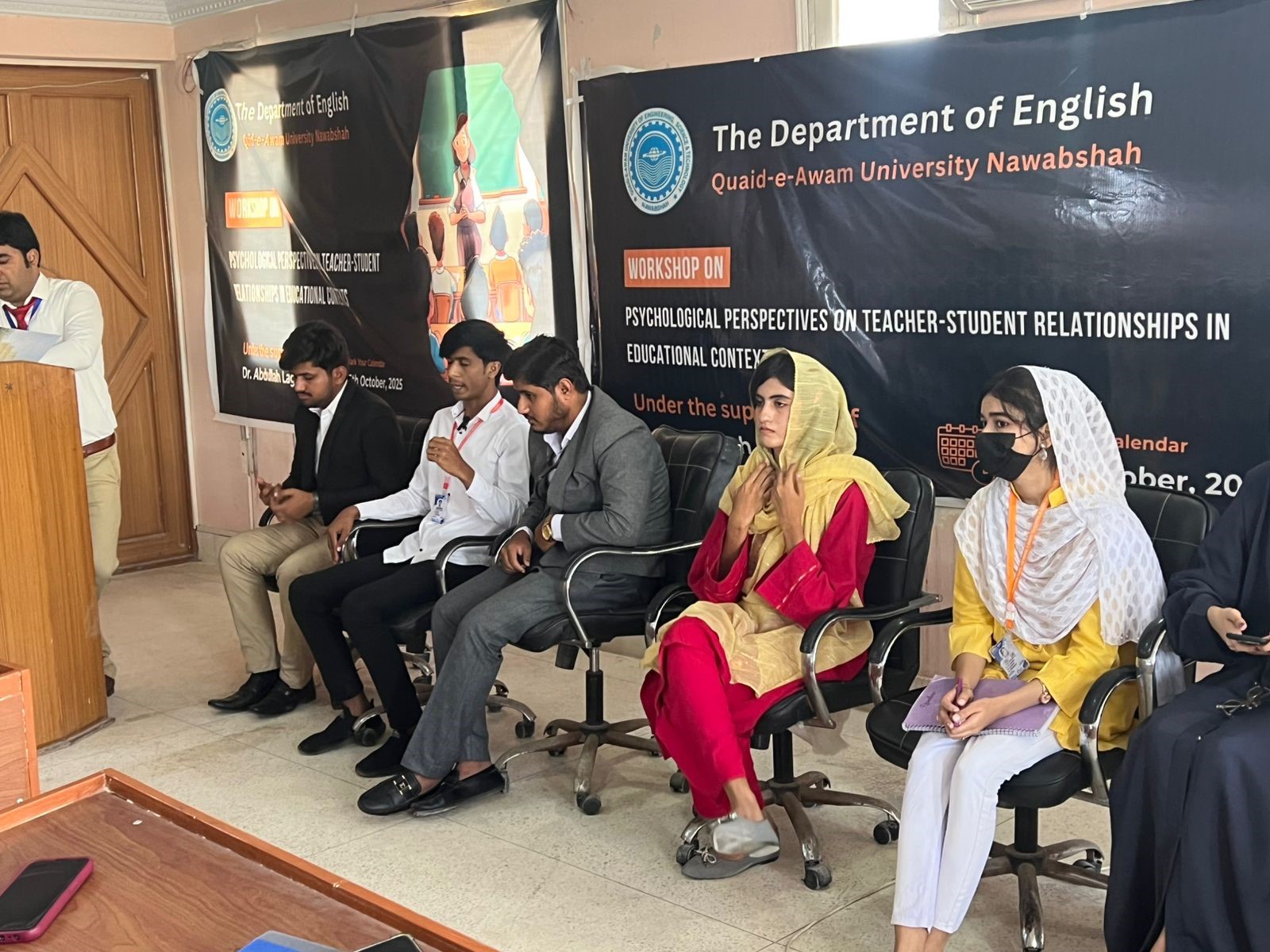
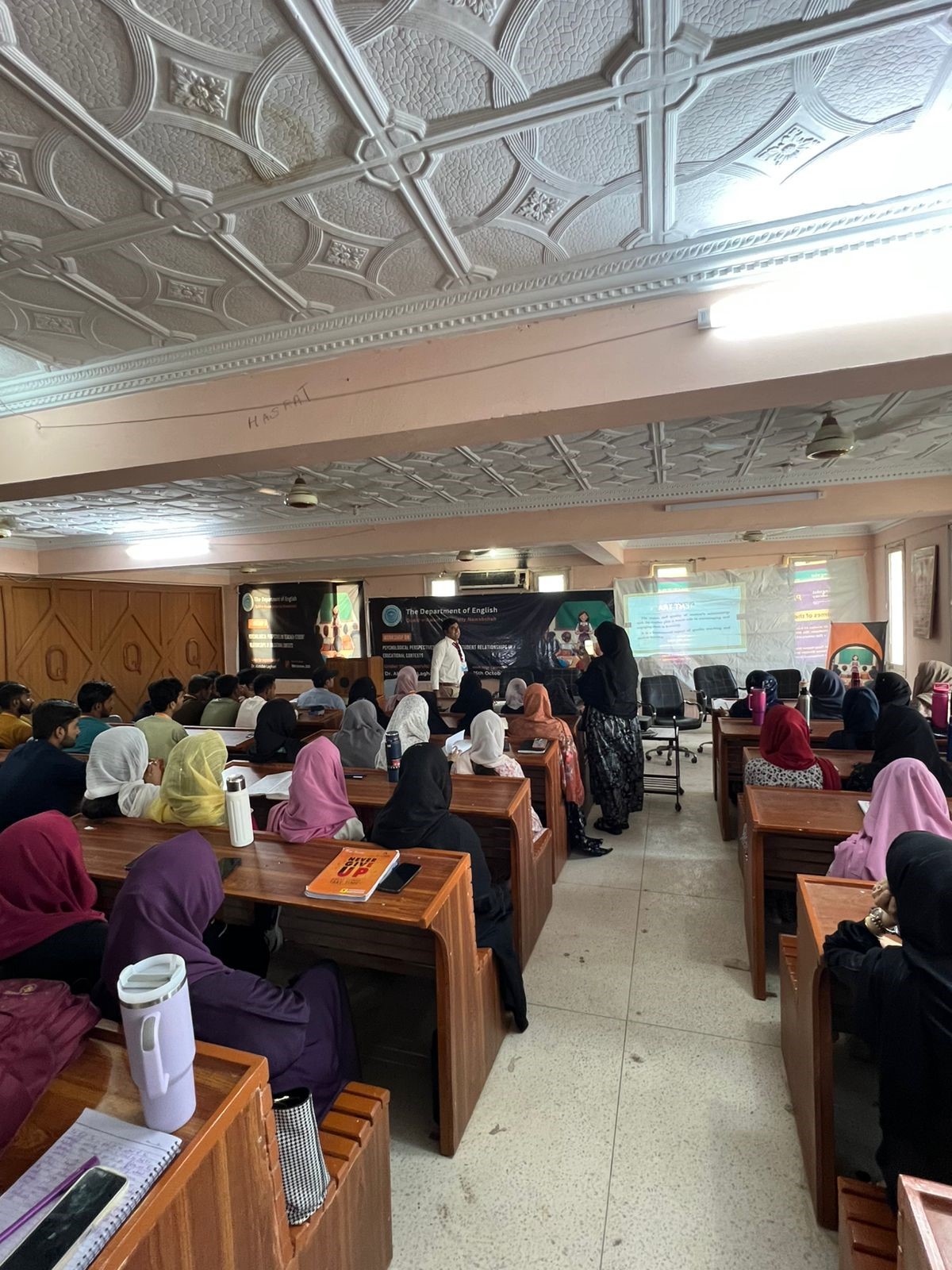
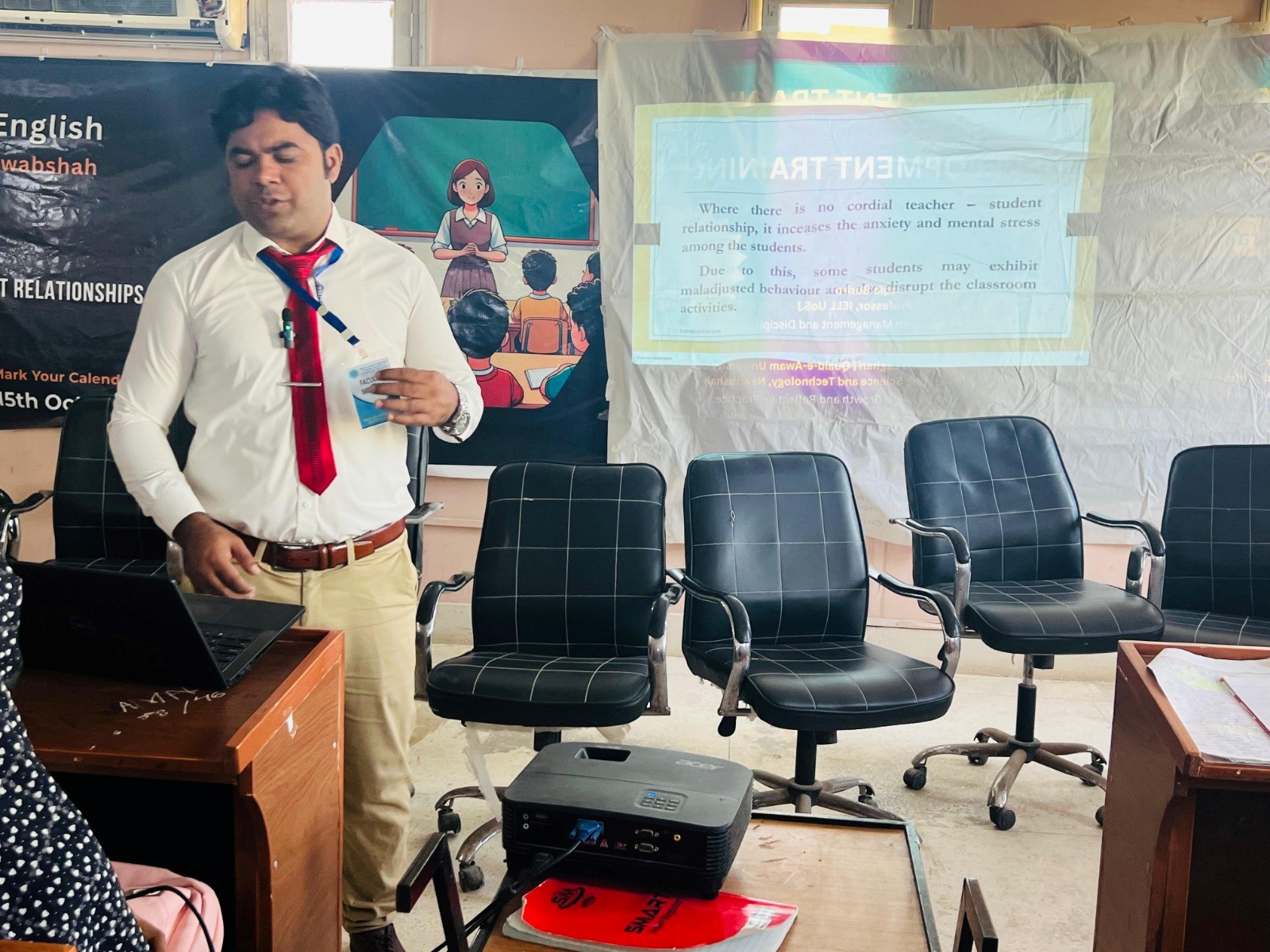
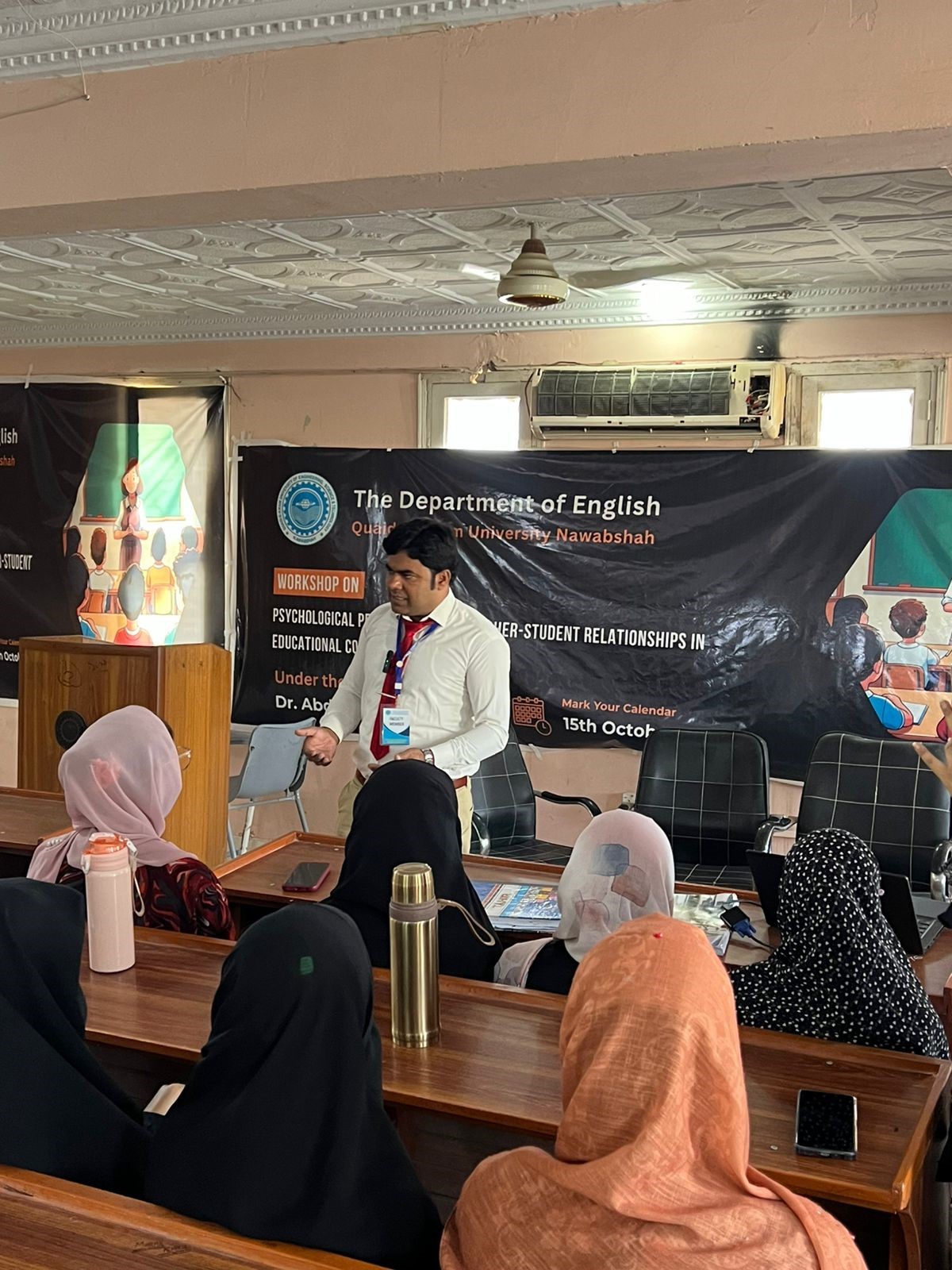
Access to Symposium: ICILLP 2025 Symposium -- Nawabshah - YouTube
Ways to Participate
Attendance Onsite
The symposium welcomes participants to attend on-site and share the innovative experiences and researches with the group. Therefore, we provide some general information about the visa application. If you want to attend the symposium on-site, please email the Symposium committee: [email protected]
Visa
In order to ensure the information is correct and up to date, there may be changes which we are not aware of. And different countries have different rules for the visa application. It is always a good idea to check the latest regulations in your country. This page just gives some general information of the visa application.
Pakistan Visa Information
How to apply?
The online application process at Pakistan Online Visa can be completed in 3 Easy Steps. Before starting your application, please go through the instructions for each step below: Application Items
Step 1: Preliminary Assessment
Choose your visa and understand the eligibility and document requirements before you apply.
Step 2: Preparation
Please ensure that you are applying for the right visa as each visa has its own set of required documents. You must have the following on-hand before you begin your application:
- Complete set of supporting documents.
- Photograph up to 350KB captured as explained in the Photograph Tutorial.
- Valid Credit Card/Debit Card for online payment of your application fee.
Step 3: Online Application
When you are ready to apply, follow the steps outlined below:
- Click on the Apply Now button to launch the Pakistan Online Visa System.
- Create a New Account.
- Login to the Pakistan Online Visa System.
- Complete your application.
- Pay Fee through a Credit Card/Debit Card.
- Submit your Application.
NOTICE:
Should your application be denied, the organizing committee cannot change the decision of visa officer, nor will ICILLP engage in discussion or correspondence with the visa application center on behalf of the applicant. The registration fee CANNOT be refunded when the VISA application of individual being denied.
